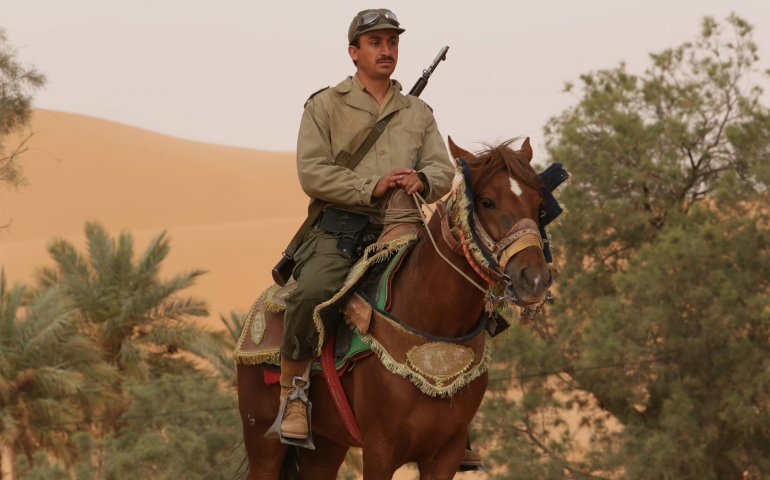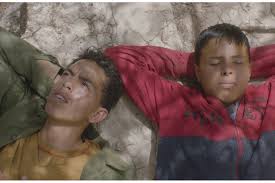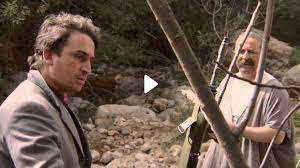🎬 Lotfi (2015)

Lotfi (2015): A Raw and Unflinching Look at Family, Struggle, and Redemption
Lotfi (2015), directed by Belgacem Aouni, is a poignant and gritty drama that delves into the complexities of life, family, and personal redemption. Set against the backdrop of contemporary North Africa, this film explores the lives of ordinary people facing extraordinary circumstances. With a focus on human vulnerability, moral dilemmas, and the difficult choices one must make when pushed to the edge, Lotfi presents a compelling narrative about survival and the pursuit of a better life.
Plot Overview: A Story of Struggle and Redemption
The film follows Lotfi (played by Sami Bouajila), a man caught in a web of personal and societal struggles. Lotfi is a hardworking, middle-aged man whose life is turned upside down when he becomes entangled in a series of unfortunate events that threaten his livelihood and the safety of his family. In his pursuit of a better life for his loved ones, Lotfi faces a multitude of challenges, from financial hardship to moral quandaries, as well as the weight of his past mistakes.
Set in a poor neighborhood, Lotfi gives viewers a stark and realistic depiction of life in a working-class environment. The narrative unfolds as Lotfi navigates the difficult choices between providing for his family and maintaining his moral integrity. He is presented with opportunities that force him to confront his own values, testing the limits of his self-respect and the love he has for those closest to him.
Through Lotfi’s journey, the film explores the themes of redemption, family bonds, and the complexities of good and evil in a world that is not always black and white. The protagonist’s struggle to survive in an unforgiving environment mirrors the broader societal struggles facing many individuals in North Africa, where corruption, poverty, and personal sacrifice are everyday realities.
Themes: Family, Redemption, and the Struggles of Everyday Life
At its heart, Lotfi is about the complexities of family dynamics and the lengths to which one will go for loved ones. The film emphasizes how, despite facing insurmountable odds, Lotfi remains determined to care for his family and secure a better future for them. This theme of familial love and responsibility is a central driving force behind the character’s decisions and actions throughout the film.
- Redemption: Lotfi’s story is also one of redemption. Having made mistakes in his past, he seeks a path forward, trying to make amends and build a better future for his family. His journey toward redemption is fraught with emotional turmoil, as he is confronted with the question of whether he can truly change and leave his past behind. His struggle to reconcile with his past mistakes and the desire to provide a better life for his children provides the emotional depth of the film.
- The Struggle for a Better Life: The film paints a stark picture of the challenges faced by working-class individuals in North Africa. Lotfi’s attempts to rise above the socio-economic challenges that plague his life resonate deeply with audiences familiar with these struggles. The pressures of financial insecurity, the desire for upward mobility, and the constant battle to survive in an unforgiving environment are all key elements that drive the narrative forward.
- Moral Dilemmas and Corruption: One of the film’s strongest elements is its exploration of the moral dilemmas that Lotfi faces as he navigates his circumstances. In an environment rife with corruption, he is often presented with choices that force him to question his own ethics. The film asks whether it is possible to maintain one’s moral compass in a world where doing the right thing often seems impossible.
Character Development: Lotfi’s Personal Journey
- Lotfi (Sami Bouajila): Sami Bouajila delivers a deeply moving and nuanced performance as the titular character, Lotfi. Through his portrayal, Bouajila captures the emotional complexity of a man grappling with personal failure and the desire for redemption. His portrayal of Lotfi is marked by internal conflict, as the character struggles between his past and present, torn between his desire to protect his family and the temptations of corruption that surround him. Bouajila’s nuanced performance brings the character to life, offering viewers an authentic and empathetic look at a man in crisis.
- Supporting Characters: The supporting characters in Lotfi add depth and complexity to the story. Lotfi’s interactions with his family—particularly his wife and children—highlight his emotional vulnerability and his dedication to them. These relationships are central to understanding Lotfi’s motivations and the choices he makes. Additionally, other key figures in Lotfi’s life, such as friends and adversaries, serve to challenge and complicate his journey, offering both guidance and temptation in different forms.

Cinematography: Gritty Realism and Intimate Portraits
The cinematography of Lotfi is designed to reflect the raw, unvarnished reality of the character’s world. The film employs a naturalistic visual style, focusing on intimate close-ups of the characters to convey their inner turmoil and emotional states. The gritty, realistic depiction of the North African setting adds to the sense of urgency and struggle that permeates the narrative.
The use of lighting in the film is also notable, with stark contrasts between the dark, shadowed corners of the city and the brighter, more hopeful moments that emerge throughout Lotfi’s journey. These visual choices serve to highlight the tension between despair and hope, emphasizing the emotional highs and lows of the protagonist’s path toward redemption.
Critical Reception: A Powerful, Emotionally Charged Drama
Lotfi has been praised for its emotional depth, compelling performances, and the authenticity with which it portrays the struggles of working-class life in North Africa. Critics have lauded Sami Bouajila’s portrayal of the main character, noting his ability to bring nuance and vulnerability to the role. The film’s exploration of complex themes—such as redemption, family, and moral compromise—has resonated with audiences, who appreciate its realistic portrayal of the challenges many people face in their everyday lives.
While some critics have pointed out the film’s slow pacing at times, the overall reception has been positive, with many praising the emotional weight of the story and the strong performances from the cast. Lotfi is particularly noted for its focus on the emotional and moral complexities of its characters, rather than relying on action or plot-driven spectacle.
Final Thoughts: A Raw and Moving Exploration of Redemption and Family
Lotfi (2015) is a powerful and emotionally resonant drama that explores the themes of family, struggle, and redemption. With an unforgettable performance by Sami Bouajila and a narrative that digs deep into the complexities of life in contemporary North Africa, the film offers a sobering yet ultimately hopeful look at the human experience. The film’s authenticity and emotional depth make it a standout in the genre of contemporary drama, and it serves as a reminder of the sacrifices we make for those we love and the lengths to which we will go to redeem ourselves.











